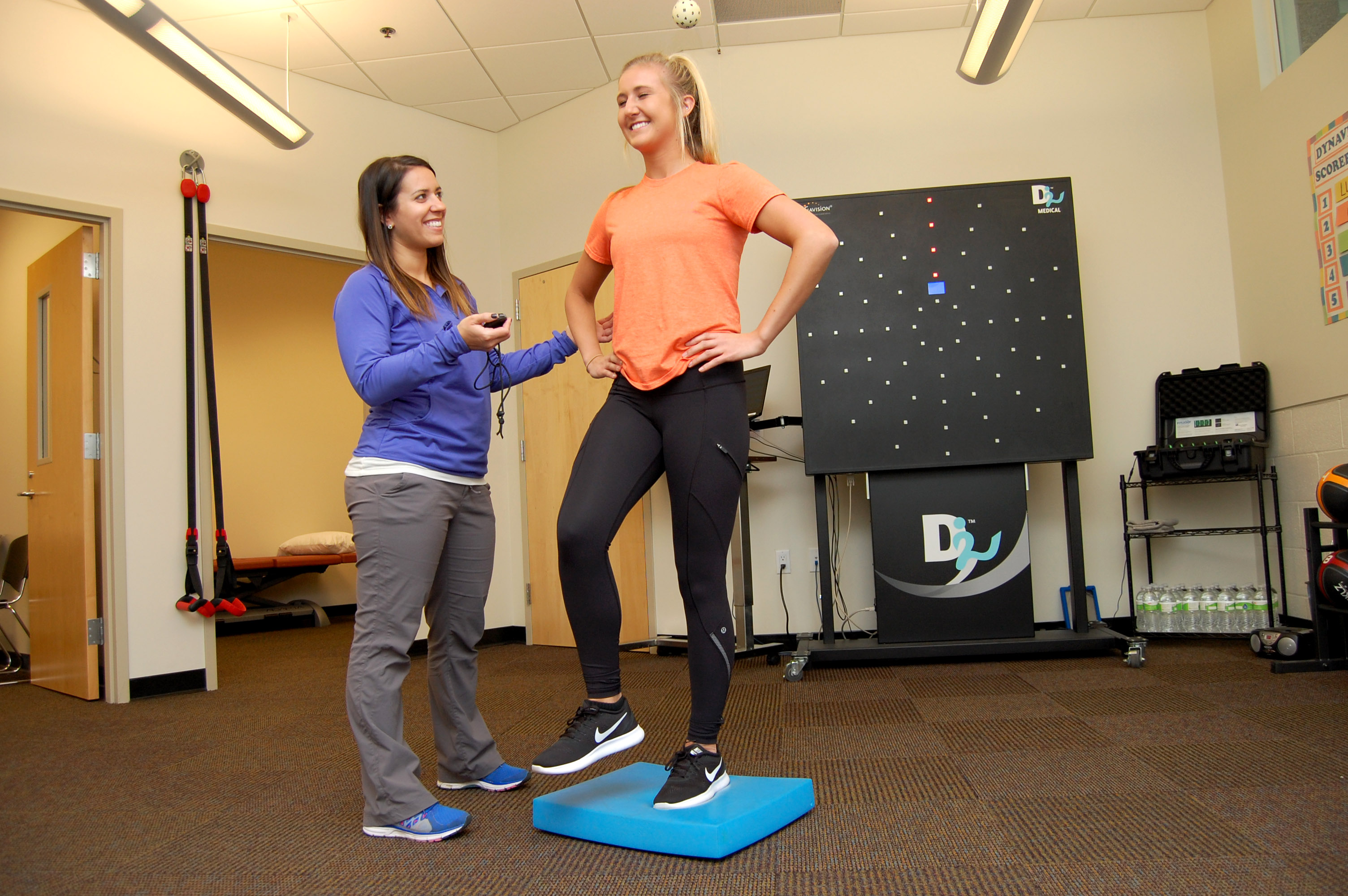Assessing Skills, Protecting Athletes
Almost 2 million U.S. children experience a concussion each year and up to 15 percent of youth athletes will experience a concussion during any given sport season. Injuries occur from sports, falls, car accidents and head collisions. Returning to school or physical activity too soon after a concussion can lead to a longer recovery process, increased symptoms, and even serious brain injury or death. ChildServe helps keep athletes safe by giving players information about the function of their healthy brain before the season starts through a concussion baseline screeningA concussion baseline screening tests how efficiently an athlete can balance, coordinate, and react. “Baseline” means that you take the screening before the season starts or before any injuries take place to see how your brain normally functions.
.
If an athlete gets a concussion during the season, ChildServe specialists use the information gathered during the concussion baseline screening to compare an athlete’s pre-injury abilities to their post-injury abilities and determine how severe the injury is and what impairments are present. Therapists in ChildServe‘s concussion program can then partner with the athlete, coaches, and family to identify a safe return-to-play progression that will lessen the risk of a second concussion, serious brain injury, and other long-term health effects.
Did you know?
%
Fewer than 10% of concussions involve a loss of consciousness, making concussions difficult to notice.
%
Why choose ChildServe?
in pediatrics, inpatient and outpatient rehabilitation, with a specialization in brain injury.
, SCATSCAT stands for Sport Concussion Assessment Tool. SCAT is a standardized tool used to evaluate injured athletes for concussion.
, and ImPACTImPACT stands for Immediate Post-Concussion Assessment and Cognitive Testing. ImPACT is a computerized concussion management tool used to assess the brain after an injury.
.

Who We Serve
Our Approach
Assessments and Technology
Concussion baseline screenings allows individuals and families to learn about the status of a child or young adult’s healthy brain, so that benchmarks can be set for recovery plans in the event of a concussion.
- ImPACT Neurocognitive Testing is a computerized test that gives specific information on how the brain processes information related to memory, sequencing, concentration, processing, and reaction time.
- Bioness Integrative Therapy System (BITS) is an interactive touchscreen that uses several different programs to assess and challenge the physical, visual, auditory and cognitive abilities of the child.
- Dynavision tests the body’s vision and balance systems to learn how they impact decision-making and concentration under stress.
- Balance Testing assesses the body’s reactions while in different positions.
- Vision Testing measures how accurately someone can visually scan across a page within a specific timeframe.
- Cognitive Screenings study how quickly the brain processes information related to memory, sequencing, and concentration.
Expert Pediatric Team
Our Team of Pediatric Concussion Specialists
Frequently Asked Questions
How do I schedule a baseline screen?
To schedule a concussion baseline test or refer a child, contact our Patient Services team at 515-251-5555.
How much does this service cost?
Concussion baseline testing is available for $75.00. Cash, check and cards are accepted.
Where are services provided?
When are services provided?
The Concussion Clinic’s hours of operation are as follows:
- Monday through Thursday from 8 a.m. to 6 p.m.
- Friday from 8 a.m. to 5 p.m
Should I get a Concussion Baseline Screen for my child if they do not play a sport?
Yes, about half of concussions are not sport-related but occur from car accidents, falls, and head collisions. A concussion baseline screen looks at how your child’s brain functions prior to an injury, which provides valuable information to create a plan for return-to-learn and return-to-play decisions in the event of a concussion. Returning to school or physical activity too soon following a concussion can lead to a longer recovery, increased symptoms, and even serious brain injury or death.
How often should my child have a Concussion Baseline Screening?
A concussion basline screening for children up to 21 years old is recommended every one to two years. This is because their brains are still developing and changing so it is important to keep up on testing as their results can change every few years.
Contact Us!
ChildServe Center - Johnston
About
ChildServe improves the health and well-being of nearly 5,800 children each year through specialized clinical, home, and community-based programs and services. We serve children with developmental delays, disabilities, injuries, and other special healthcare needs.
Follow Us
Contact Us
Johnston | 515-727-8750
Ames | 515-232-7220
Des Moines | 515-280-5332
Iowa City | 319-351-5437
Cedar Rapids | 319-777-7450
Links
